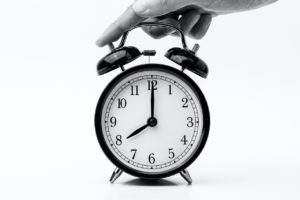August 19, 2022
 When we talk about health we usually think about diet and exercise, but we don’t often realize the amount of sleep we’re getting also plays a role in our overall health. Allowing ourselves to get a good night’s rest gives our bodies a chance to recover from the day and gives our brain a break so that we wake up ready to take on a new day.
When we talk about health we usually think about diet and exercise, but we don’t often realize the amount of sleep we’re getting also plays a role in our overall health. Allowing ourselves to get a good night’s rest gives our bodies a chance to recover from the day and gives our brain a break so that we wake up ready to take on a new day.
As we age, we need different amounts of sleep. While we are young and still developing, we need more than we do when we are adults. Below are the recommended amount of sleep needed by age according to the Centers for Disease Control (CDC) per 24 hours:
Newborn (0-3 months) 14-17 hours
Infant (4-12 months) 12-16 hours per 24 hours
Toddler (1-2 years) 11-14 hours
Preschool (3-5 years) 10-13 hours
School Age (6-12 years) 9-12 hours
Teens (13-18 years) 8-10 hours
Adults (18-60 years) 7 or more hours
Seniors (65+) 7-8 hours
There are many reasons why we don’t get the necessary rest we need. Stress, sleep disorders, medical conditions, and kids are all reasons that we might not be sleeping as well. Don’t worry, there are simple ways to help your body get more restful sleep.
 Set a sleep schedule– A schedule just means setting a designated wake-up time and bedtime. Adjusting your body to a sleep schedule will take some time though, so don’t expect it to happen overnight! Start by slowly adjusting your schedule and once you get to the desired bedtime and wake-up times, keep up with that routine. As your body adjusts, it will become easier to wake-up and go to sleep at your set times.
Set a sleep schedule– A schedule just means setting a designated wake-up time and bedtime. Adjusting your body to a sleep schedule will take some time though, so don’t expect it to happen overnight! Start by slowly adjusting your schedule and once you get to the desired bedtime and wake-up times, keep up with that routine. As your body adjusts, it will become easier to wake-up and go to sleep at your set times.
Exercise regularly– Besides being good for weight management, exercising daily helps your body sleep better at night. During exercise, your body uses more energy than it does during normal daily activities. As a result, your body becomes more tired and it can help make it easier to fall asleep. Avoid working out right before bed though, as this can actually make it harder to fall asleep.
Limit caffeine- Most people need a caffeine kick in the morning to help wake up. Coffee, soda and some teas all have caffeine in them. Caffeine in the morning is ok, but drinking it later in the day means that you’ll still have caffeine in your system later at night. Since caffeine is designed to give you energy, it doesn’t do any good for falling asleep.
Limit technology before bed- Electronic devices like cell phones, laptops and tablets have a brighter light that suppresses the body’s natural production of melatonin which is needed to sleep. Shutting off screens 30 minutes before bed gives your brain a chance to start shutting down for the night.
Make your bedroom comfortable– Creating a comfortable and inviting space in your bedroom can also help improve resting hours. Ambient light can also disturb sleep rhythms so you might consider black out curtains to help block out moonlight or other lights.
Find your pre-bed routine. Just like setting a sleep schedule can help you fall asleep, having a pre-bedtime routine can also help get you to sleep. Try adding a routine before bed like light stretching for 10 minutes, or reading a few pages in a book to help settle in. Dimming the lights before bed also helps your brain realize that it’s time to sleep.
 Don’t eat late– Typically the body’s metabolism slows down at night, which makes eating a larger meal harder to digest. Especially fatty or spicy foods can also disrupt sleep as they’re harder to digest and spicy food can often cause heartburn. Instead of a large meal, try a small, healthy snack instead!
Don’t eat late– Typically the body’s metabolism slows down at night, which makes eating a larger meal harder to digest. Especially fatty or spicy foods can also disrupt sleep as they’re harder to digest and spicy food can often cause heartburn. Instead of a large meal, try a small, healthy snack instead!
To learn more about getting better sleep, check out the Sleep Foundation website!
The StayWell Health Center Team